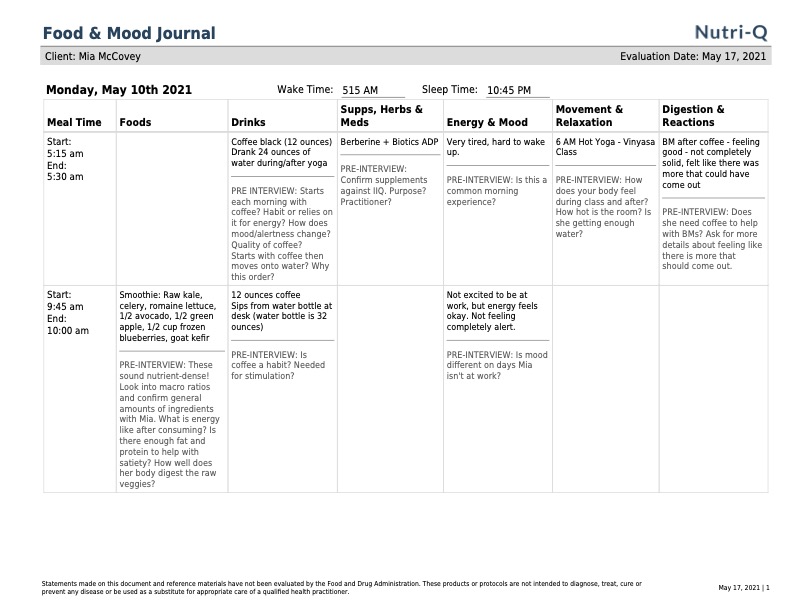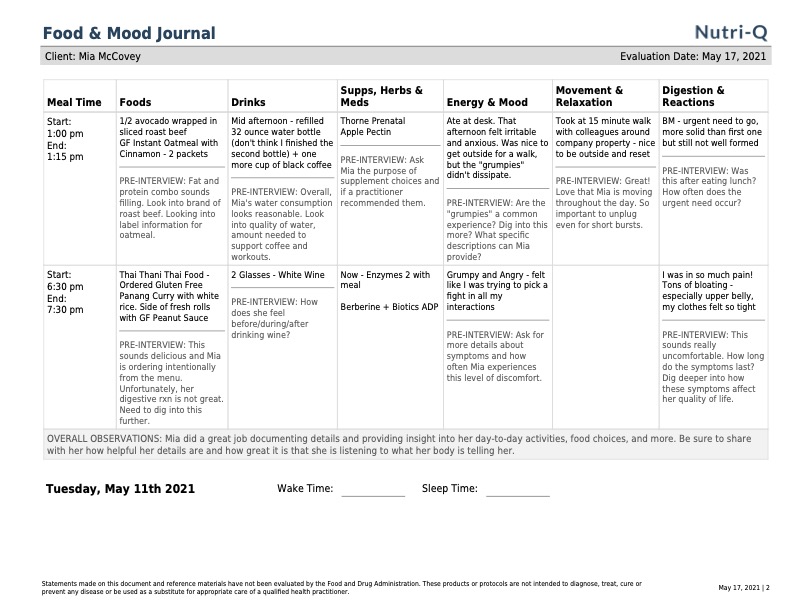Have you ever noticed that the foods you eat can affect your mood? It’s true – what you put into your body can have a big impact on how you feel emotionally and mentally.
That’s why it’s important to pay attention to the foods you eat, especially if you’re dealing with mood-related issues such as anxiety or depression. Some foods, such as processed and sugary snacks, can lead to a quick burst of energy followed by a crash, which can leave you feeling irritable and low. On the other hand, foods that are rich in nutrients and healthy fats, such as fruits, vegetables, and whole grains, can provide sustained energy and support brain function, leading to improved mood and overall well-being.
One way to track the relationship between food and mood is to keep a food and mood journal. In this journal, you can record the foods you eat and how you feel after eating them. This can help you identify patterns and see how certain foods affect your mood.
For example, you may find that you feel more energized and alert after eating a salad with grilled chicken for lunch, while a slice of cake leaves you feeling sluggish and low. By paying attention to these patterns, you can make informed decisions about what foods to eat and how they may impact your mood.
In addition to tracking the foods you eat, it’s also important to pay attention to other factors that may impact your mood, such as your sleep patterns, exercise habits, and stress levels. By keeping a holistic view of your well-being, you can better understand and manage your mood.
Overall, a food and mood journal can be a useful tool for understanding the relationship between what you eat and how you feel. By paying attention to the foods you eat and how they affect your mood, you can make informed decisions about your diet and take steps towards better mental and emotional well-being.
Here is a sample food and mood journal by an Eat By Design Practitioner and a client.


